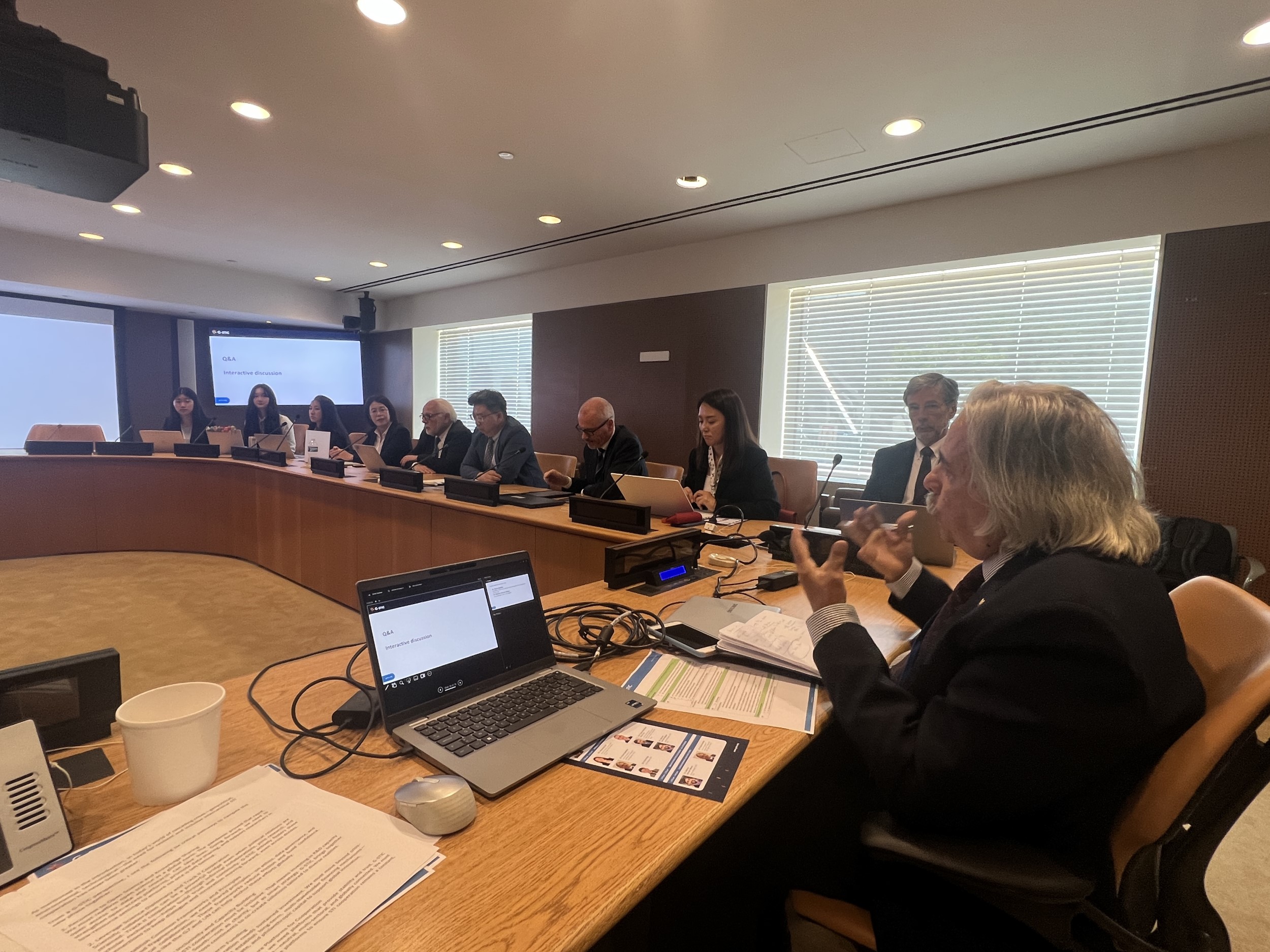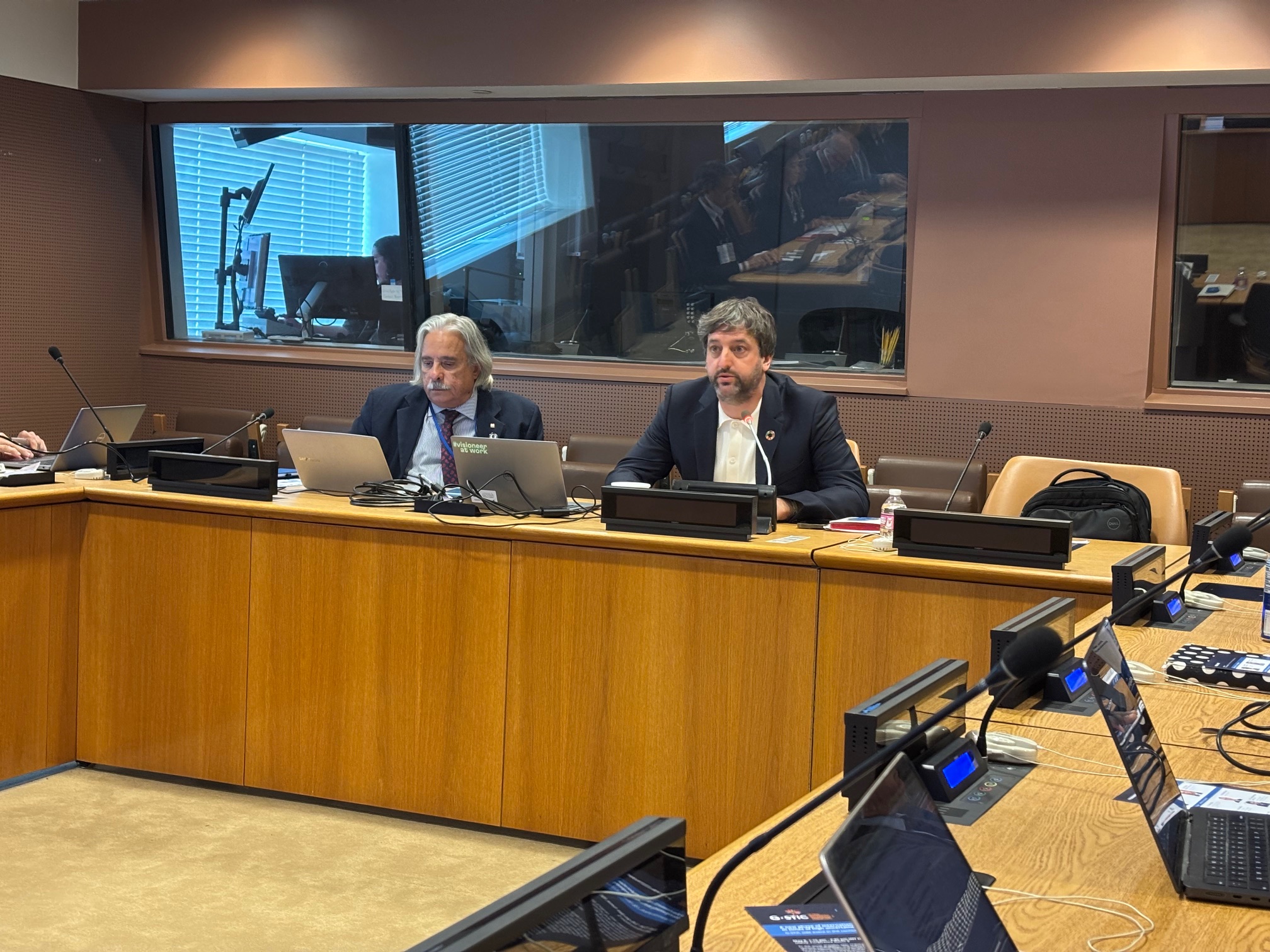A new phase of international STI cooperation in times of high uncertainty and complexity
On 8 May 2025, G-STIC hosted a side event at the UN STI Forum in New York, in collaboration with the Permanent Missions of Belgium and Brazil, South Korea’s STEPI, and Brazil’s Fiocruz. The event, held in-person, brought together diverse stakeholders to explore how international collaboration on science, technology and innovation (STI) can support systemic solutions to today’s most urgent global challenges.
Systemic challenges demand systemic cooperation
The world is at a turning point. Deep-rooted inequalities, climate breakdown, digital exclusion and geopolitical tensions continue to undermine global stability and delay progress on the 2030 Agenda. Millions of people still face poverty, violence and exclusion, with limited or no access to clean water, food, housing, healthcare, vaccination, safety and education. At the same time, societies are increasingly exposed to disinformation and growing distrust in science. These urgent challenges threaten both public health and democratic resilience.
Adding to these issues is the triple planetary crisis of climate change, biodiversity loss and pollution. Destabilised ecosystems heighten the risk of disease outbreaks, undermine food security, and increase vulnerability to natural disasters. Ongoing geopolitical tensions further disrupt global stability, eroding international law, human rights and economic resilience.
Against this backdrop, STI remains one of the most powerful tools to enable just, sustainable and resilient societies. The G-STIC Side Event aimed to reimagine international STI cooperation as a vital enabler — not an add-on — in navigating uncertainty and complexity.
From fragmented efforts to connected impact
Bringing together policymakers, researchers, and innovators, the G-STIC Side Event explored new models of international STI cooperation that prioritise resilience, equity, and impact. The session sparked lively, solutions-oriented discussions on how to leverage STI for climate action, enhance digital and technological inclusivity, and strengthen global innovation ecosystems.
Participants reflected on:
- The emerging challenges facing STI cooperation in today’s fragmented global context;
- The evolving role of research institutions in bridging science, policy and society.
Throughout the discussions, there was a strong call to move beyond traditional models of cooperation. Contributors emphasised the need for a new paradigm of STI collaboration; one that is adaptive, inclusive and firmly aligned with global sustainability goals.


From dialogue to action: key recommendations
- Reinforce inclusive and adaptive STI collaboration: STI cooperation must be seen as essential, not optional, in responding to global challenges — particularly in areas such as climate resilience, health, and peacebuilding.
- Bridge-building is crucial: Belgium and Brazil emphasised their commitment to science diplomacy, multilateralism, and inclusion, aiming to engage all regions, especially least developed countries.
- Shift to inclusive participation: There is a growing role for low- and middle-income countries in global STI systems, and collaboration frameworks should reflect this evolving geography.
- Align STI policies with global and local needs: As noted by STEPI and the OECD, many governments still separate domestic challenges from global ones. A stronger narrative and evidence base linking the two is essential.
- Promote STI for the public good: Brazil highlighted that innovation must advance social inclusion, environmental sustainability and economic development — not just serve elite or commercial interests.
- Balance openness with security: The OECD described the increasing “securitisation” of STI policy. It recommended proportionality, precision, and partnership to avoid overly restrictive policies that could undermine global cooperation.
- Invest in human capacity and education: Several speakers — including VITO, STEPI and JITRI — emphasised the importance of talent development, highlighting programmes that help researchers better understand commercialisation and entrepreneurship.
- Empower local actors: Questions from the audience underscored the need for frameworks that recognise and integrate local knowledge and community-driven innovation, particularly in the Global South.